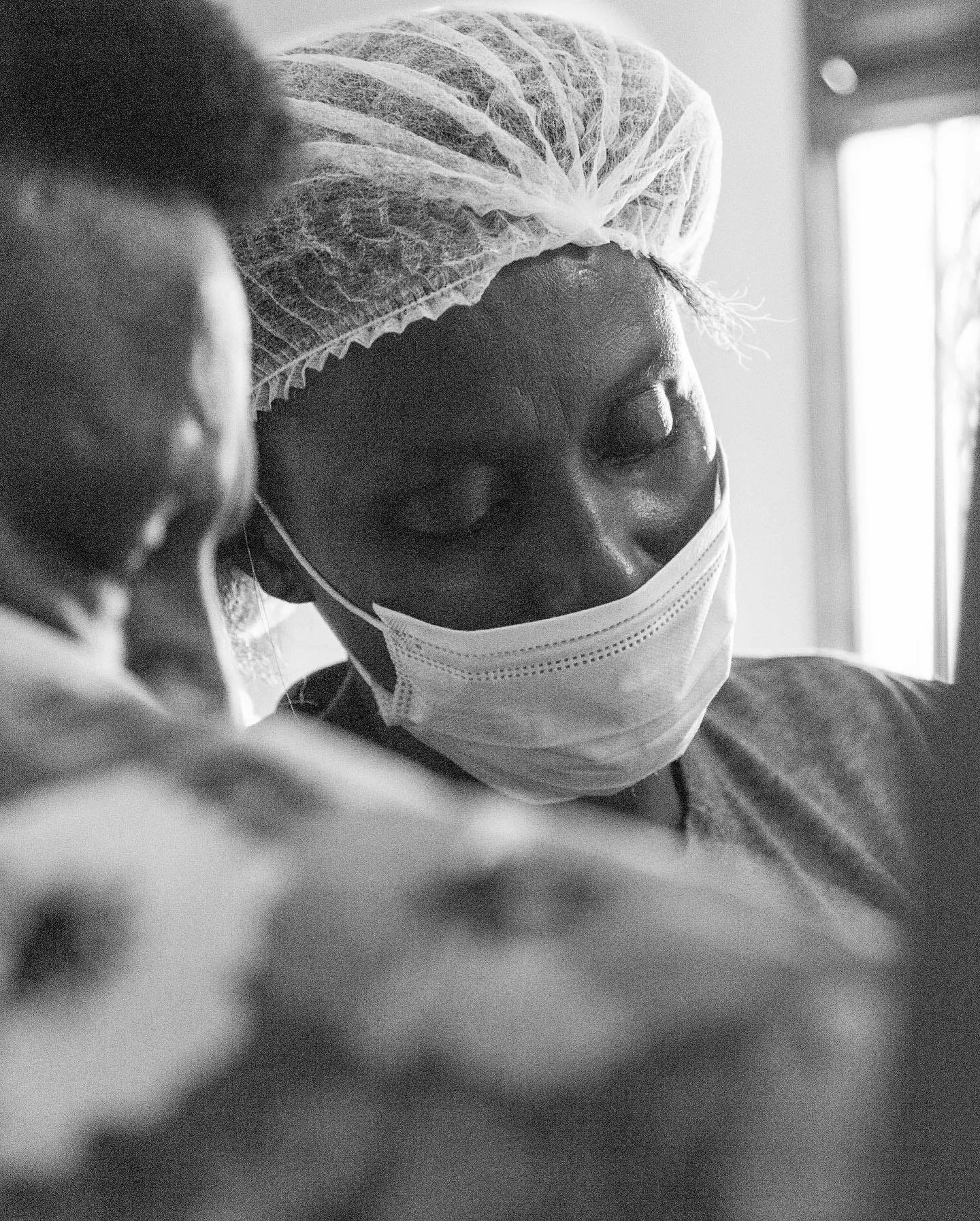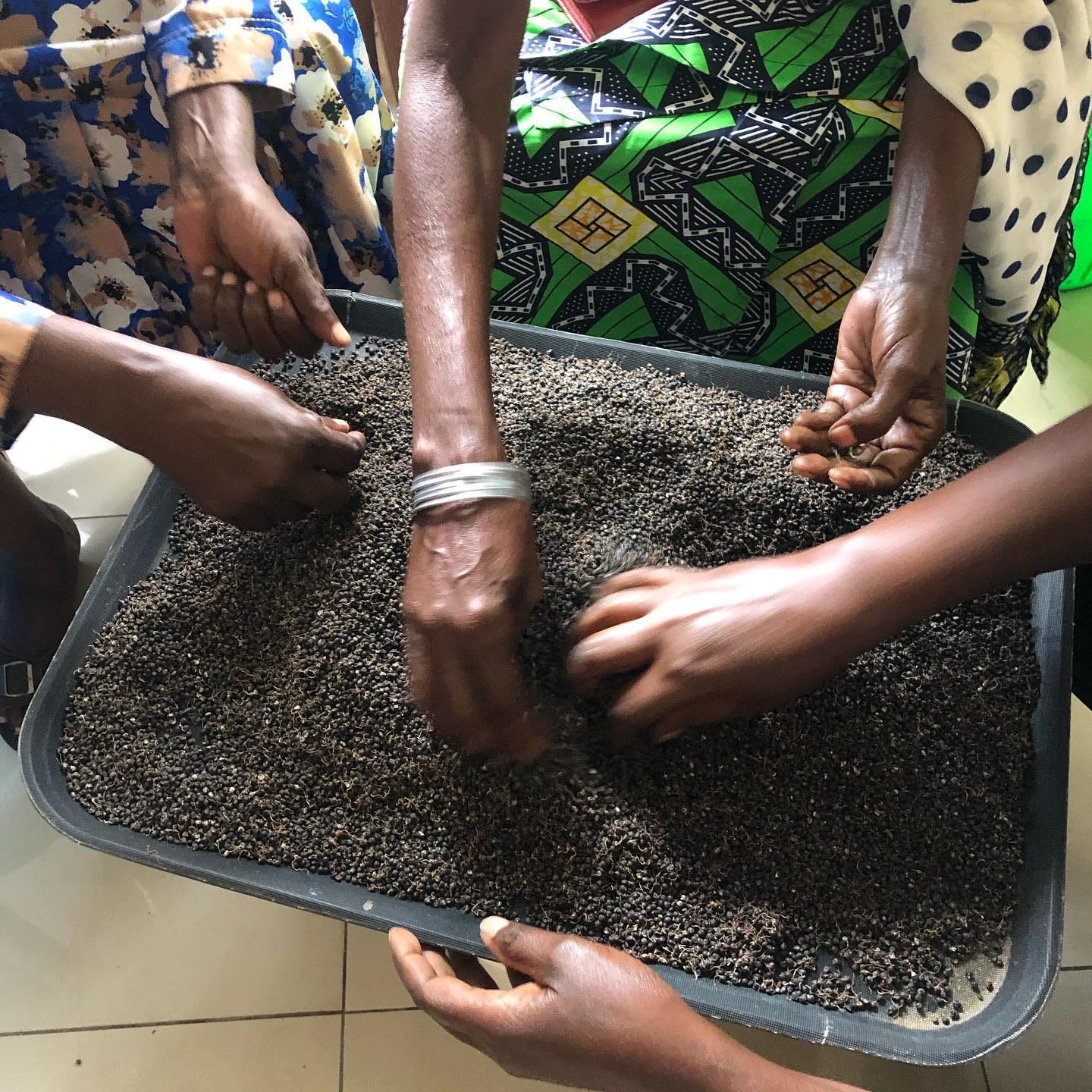In Kigali, Rwanda, A Trio Of Talented Women Are Brewing Change
Meet the women of Kweza Craft Brewery.
Beer’s roots extend much, much deeper than the current haze craze, the Renaissance of the nineties, and even the post-Prohibition boom. Records detailing early forms of alcohol in China have been unearthed from thousands of years ago, but beer as we know it—water, yeast, and barley (hops came later)—originated in the Middle East and spread across the African continent around the 15th century. Eventually, and like most things, brewing was co-opted by colonialism, the patriarchy, and history was re-written to favor a male-dominated and Eurocentric narrative of progress.
Today, the attention around Africa’s growing craft brewing scene largely centers around South Africa, thanks to South African Breweries’ 2002 acquisition of Miller Brewing (forming SABMiller before it was in turn acquired by Anheuser-Busch InBev in 2016), a number of hop growing agricultural initiatives, and relatively early embrace of the craft beer movement. Their annual barrel output is nearly double that of Nigeria’s, the second largest beer producer on the continent. But innovation is happening elsewhere; specifically in Rwanda, where the country’s first brewpub, Kweza Craft Brewery, has been in the works in the capital city of Kigali since launching a Kickstarter in fall 2016.
Kweza has a number of people responsible for its inception, but today, three women run the show. Jessi Flynn, a white American woman who joined Kweza in 2018, is the managing director, head brewer, and chief convener responsible for executing the business plan, overseeing construction, investments, marketing, design, and of course, brewing. Debby (Deb) Leatt, a white Zimbabwean woman who joined Kweza in 2020, is the executive chef and partner in charge of menu planning, hiring and training, as well as business development. Josephine Uwase, a Black Rwandan woman who came on board in 2020, is the brewing assistant responsible for brewhouse operations, traditional brewing and recipe development for brews like sorghum beer, ingredient sourcing, cultural knowledge, and general operational organization. (Fun fact: Uwase has been an avid homebrewer since 1994, and she claims her sorghum beer is so popular that people would travel hours to get it.)
Kweza isn’t just Rwanda’s first brewery. It’s a beacon of inspiration for aspiring women entrepreneurs across the country. “We’re hopefully going to set some kind of global precedent: being the first country in the world where the commercial craft beer industry is being started by women,” says Flynn. But representation is far from the end goal. She hopes that by providing a tangible success story in a place where before there was none, the gatekeepers holding the world’s purse strings might see the value of investing in women.
“Since getting deeply involved in Kweza, I’ve come to realize the importance and power of capital,” says Flynn. “Basically, white men hold the majority of the world’s capital, which means they get to make the majority of decisions about what businesses get invested in, which ideas move forward. And only 2.7% of VC funding goes to female founders, despite data that shows that female founders exit faster and more profitably than men… long term, I’m more interested in building women’s generational wealth so that women can be the ones in the future also making important capital decisions, helping to support other women and businesses to get launched, and shaping economies ourselves.”
This type of long-term grassroots initiative focused on beer can yield an entirely new (and lucrative) economy in Rwanda. A 2019 case study discussing “the possibility of indigenous beverages to contribute to economic empowerment” was published in The Conversation and revealed that “[alcoholic] beverages had great potential for improving the livelihoods of rural women,” pointing to success stories across sub-Saharan Africa where women have been able to transform fermented beverages into a sustainable source of income. As a region largely dominated by multinational macro beer options, introducing a locally-made craft alternative means tapping into a consumer base already primed to enjoy the beverage. Beverage Daily calls Africa “the fastest growing beer market” in the world, explaining “the beer market in Africa is predicted to grow faster than any other region over the next five years, driven by a rising population, urbanization, and increased GDPs.”
Politically in Rwanda, there’s already a precedent for putting women in positions of power, especially after the 1994 genocide that rocked the nation and redefined Rwanda’s former political structure. As of 2020, the country has the highest percentage of women in the national parliament than anywhere else. (Comparatively, the United States is ranked #87, between Armenia and Lesotho.) Only three countries in the world can say women make up the majority of parliament positions: Rwanda, Cuba, and Bolivia. (The United Arab Emirates currently has an equal 50/50 split.)
Even with the unusually high ratio of women with political power, the women building Kweza have faced plenty of obstacles since opening. The pandemic was one obvious problem. “The food and drink industry has been crippled,” says Leatt. Flynn agrees, explaining that import delays, closed borders, and curfews spawned some creative problem solving that actually led to some fortuitous results in certain situations. “Our most popular beer, an alcoholic ginger beer, was created during lockdown,” says Flynn. “I could only use what could be ordered and delivered locally, as we weren’t allowed to leave our houses, so I ended up with a lot of fresh fruit and mop buckets to brew in!”
But beyond the pandemic, acquiring ingredients, brewing equipment, and even staff remain difficult for the pioneering brewery. “The fact that we’re the first craft brewery means the government doesn’t quite know how to categorize and regulate us, so we’ve had lots of meetings to figure out how to get licensed and operate,” says Flynn. Leatt hopes that their recruiting and training initiatives will eventually serve as a template for like-minded businesses to develop a skilled workforce, which will eventually expand outside Kigali and perhaps even beyond Rwanda itself.
While the trio hopes to inspire aspiring brewers and entrepreneurs, they also aim to elevate local ingredients in their food offerings. As Kweza’s chef, Leatt says bringing the farm-to-table concept to Rwanda means showcasing agricultural products like sorghum, cassava, and different fruits as part of a holistic food and drink concept. “My professional goal at Kweza is to design a memorable food and brew experience that visitors will never forget,” she explains. “We have started working on a few delicious items, including a stout-braised pork pie. Some other yummy bites are an IPA-battered fish taco, sticky ginger beer-glazed chicken wings, and locally-sourced three-cheese samosas, which goes well with our IPA.”
Other future plans include more crowdfunding opportunities and a Founder’s Club for locals who live in Rwanda. Once COVID restrictions lessen, they’ll also begin hosting tastings, a summer brewpub groundbreaking ceremony, and (hopefully) a fall Grand Opening. Flynn is also interested in setting Kweza up as an incubator for other craft breweries in the area, and Uwase dreams of moving beyond Rwanda’s borders. “I want to expand Kweza brewery even out of Rwanda to the neighboring countries including Burundi [and] Congo,” Uwase says. With support from her team and their dedication to advancing women in all industries, Kweza is poised to impact the future of beer in ways we’ve never seen before.
Prohibitchin' is made possible by a sponsorship from Hopsbauer, a woman-owned hops brokerage company based in San Diego. Hopsbauer brings the best hops from around the world to craft breweries. Find out more by visiting Hopsbauer.com, and thanks to Liz Bauer for her generous support!







